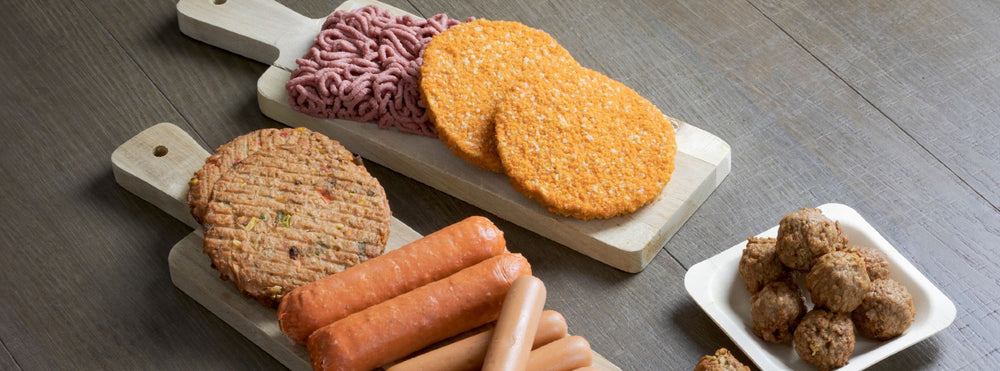Does it count as a vegetable if it “bleeds”?

I’ve weighed in on the faux burger debate before, here and here, but new research has rekindled the debate. Plus, it’s almost impossible to walk through a grocery store now without seeing Impossible Burgers and Beyond Burgers, not to mention oat and almond "milk".
But if you’re trying to decide between a traditional hamburger and a plant-based alternative, the question is not just which one is better. The question also needs to consider: Instead of what? And with what? If everything is held constant, and we’re only substituting the patty, the plant-based version should win … but that’s primarily for environmental reasons. These new burgers are much better for the planet.
But if it’s a whole meal choice, that traditional beef patty served on a whole grain bun with a side salad is a much better option compared to a plant-based burger on white, served with a side of fries.
Since their launch and my initial comments on the topic, plant-based meat alternatives have gotten better in terms of nutritional metrics, especially when it comes to saturated fat content. And newer research has even uncovered some possible health advantages to the new breed of plant-based burgers, especially when compared to the real deal: Many are lower in calories so may assist weight loss, and one study even found a connection between eating plant-based meat and lower TMAO and LDL cholesterol. (Here’s a primer on TMAO.) But this does not mean we should all be rushing out to buy plant-based meats because they’re so good for us! All this research shows is that one version of “meat” is somewhat less bad. So several of my original red flags remain: Fake burgers are highly processed, (have you tried to read their labels?) and some plant-based meats contain six times as much sodium as traditional meat. Others contain added sugar.
Also, the debate is perhaps the wrong debate. Instead of comparing plant-based “meats” to meats, what if we compared plant-based “meats” to plant-based meals? The debate becomes moot: Eating fruits and vegetables in their original forms wins every time.
What does all of this mean for you?
Well, if you’re a big fan of traditional meat, it could mean that swapping out some of your burgers for plant-based meats could be modestly healthier. But I’d also evaluate what else is hitting your plate. You might see a much bigger health impact by switching out what accompanies the burger rather than switching out the burger itself.
If you’re interested in shifting your diet to become plant-based, and this seems like an easy way to transition, go for it! Having said that, the long term goal should still be to eat less processed foods in general.
But if “burger night” at your house already means cooking up a chickpea-and-mushroom version, stick with that. Going for a plant-based meat alternative instead would actually set you back on the health continuum.
Plant-based dairy has its own set of pros and cons. Each type of “milk” offers different nutrients: Cow’s milk contains lots of calcium (over 300 mg per serving) and protein (almost 9 grams per cup), while not all nut milks do (check the nutrition panel for those numbers). In terms of heart health, though, almond milk, oat milk, soy milk and even hemp milk are probably better choices for cholesterol control. Just make sure to read the labels closely and choose a no-added-sugar version!

Tested & Proven Results.
- Cardiologist formulated
- Supported by over 500 publications
- Clinically-proven, in a double-blind randomized trial with Mayo Clinic and The University of Manitoba
80% of participants lowered their cholesterol in just 30 days. With just two servings per day, Step One Foods offers a proven-effective way to naturally lower LDL (bad) cholesterol.
Get heart health tips and articles like this, delivered right to your email.
New articles every week.
You may also like...

Magnesium and Type 2 Diabetes: The Overlooked Connection

You don’t need to avoid foods with cholesterol…except for these



